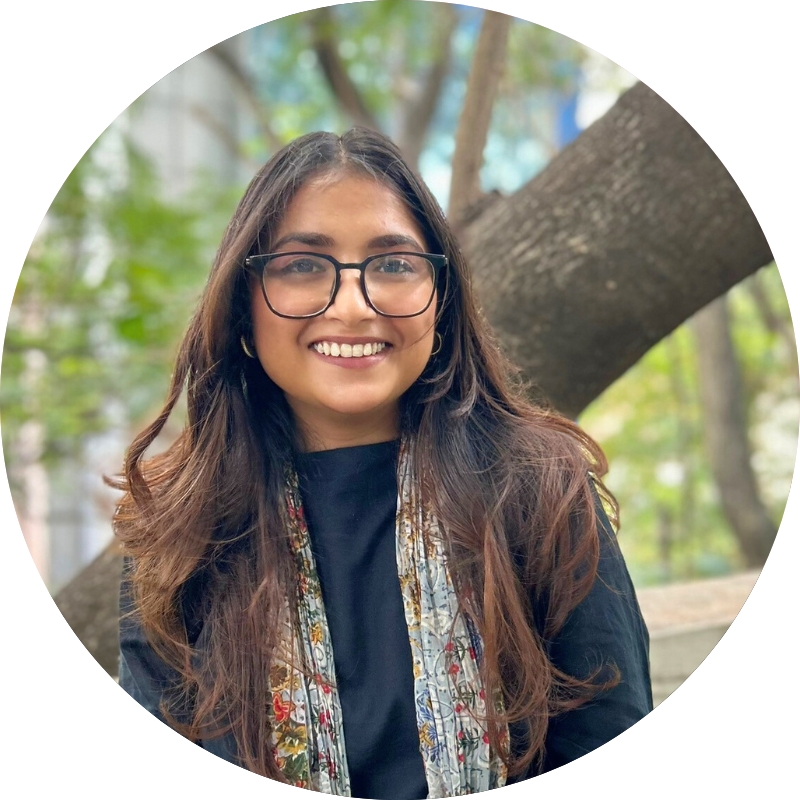The Centre for Law & Policy Research (CLPR), in collaboration with PACTA, organised an awareness session “Know Your Rights & Entitlements: Legal Rights of Persons with Disabilities” on 28th August 2025 at the Bangalore International Centre (BIC). The event discussed the scope of the Rights of Persons with Disabilities Act, 2016 (RPwD Act), including the rights and entitlements afforded to persons with disabilities, with a special focus on their rights to education and access to justice.

Dr. Kiran Nayak (KVS and CLPR) welcomed the participants, and took them through the agenda for the session. The first session, “Overview and Implementation of the RPwD Act, 2016” was conducted by Nithya Rajshekhar (Senior Research Associate, CLPR). She provided a comprehensive overview of the RPwD Act, tracing its history from the Persons with Disability Act, 1995, to India’s ratification of the UNCRPD in 2007, and resulting in the 2016 Act. She explained how the Act broadened the definition of disability, recognising 21 categories of specified disabilities, and guaranteed equality, non-discrimination, accessibility, and protection from cruelty and abuse. She highlighted specific rights such as the right to equality and non-discrimination (Section 3), the right to live in the community (Section 5), legal capacity (Sections 13-14), the right to access to justice (Section 12), and entitlements to social security, health, and rehabilitation (Chapter V). This session set the legal foundation for the discussions that followed.

The second session “Data Presentation on the Access to Education for Persons with Disabilities” was conducted by Nivedita Krishna (Founder-Director, PACTA). She presented critical data on access to education for children with disabilities (CwDs), highlighting the implementation gaps in the enforcement of the RPwD Act and the Right to Education (RTE) framework. She referred to Section 17 of the RPwD Act and emphasised the importance of teacher training, scholarships, reasonable accommodation, and curriculum modification. She linked her analysis to SDG-4 on inclusive education and examined whether current metrics such as disability-friendly infrastructure, teaching modules and enrolment data adequately reflect the lived reality of CwDs. She also invited participants to suggest further metrics that ought to be collected and measured by the government – this led to a suggestion on including gender-disaggregated and disability-specific data. Her analysis of UDISE+ data revealed continuing gaps in enrolment. She also discussed the student-teacher ratio (STR) for children with disabilities, referencing the 2009 case Rajnesh Kumar Pandey v. Union of India, which specifically provided an STR for primary education at 10:1 and higher secondary education at 15:1. Data reveals a shortfall of special educators by over 60%. She concluded by highlighting potential solutions for better implementation, including strengthening disability-disaggregated data disclosure, building a well-trained teaching workforce, ensuring flexible and supportive policies, reversing declining budget allocations, expanding institutional coverage, and empowering parents as advocates.

The third session on “Access to Justice for Persons with Disabilities” was conducted by N. Shreyas (Advocate and Constitutional Defender Fellow, CLPR). He spoke on evolving models of disability rights, from charity to medical, to the transition toward social and human rights models. He highlighted the legal trajectory from the ADA (USA) and India’s PWD Act, 1995, to the UNCRPD, and eventually the RPwD Act, 2016, pointing to the eight-year delay after ratification of the Convention before the law was enacted. Drawing from lived experiences, including that of a visually impaired professional compelled to relocate for work despite repeated representations, he illustrated systemic barriers to justice faced by persons with disabilities. He examined the powers and responsibilities of the CCPD and SCPD, noting the limits on their power, since they can only make recommendatory orders. Further, he highlighted how vacancies in these positions weaken enforcement, and discussed the gap between the law’s mandate for special courts and the ground reality.
He also drew attention to Section 92 offences relating to fraudulently claiming benefits as a person with disability, citing the example of the Priya Kedkar case, where an IAS officer falsely obtained employment citing a disability. He reflected on the broader accountability challenges that persist, noting how Priya Kedkar’s suspension was stayed by the Supreme Court and she has not faced any repercussions for her actions. His session underscored that formal rights without effective enforcement remain hollow.

The fourth session “Right to Education for Persons with Disabilities” was conducted by Nithya Rajshekhar. She highlighted the right to education within India’s constitutional and statutory framework, demonstrating how these together obligate both the State and private institutions to ensure inclusive, non-discriminatory education. She explained provisions for inclusive education, duties of educational institutions and the responsibilities of governments. She also outlined the special provisions for children with benchmark disabilities, reservations in higher education and the 3% horizontal reservation for children with disabilities in Kendriya Vidyalayas.
Following the sessions, there was an interactive question and answer session where participants engaged with the speakers on practical challenges in implementation and shared the lived realities of persons with disabilities navigating the education and justice system. With that, the session was concluded with remarks by Priya Chaudhary (Research Associate, CLPR).


